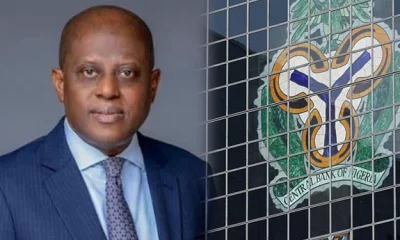Regulatory capital ratios have been impacted by the large depreciation of the naira given the extent of dollar lending in the sector. Banks have also been hit by the sharp rise in impairments (implying little or no retained earnings).
The Central Bank of Nigeria (CBN) requires that banks with international subsidiaries maintain a capital adequacy ratio (CAR) of 15 per cent while banks without international subsidiaries maintain a CAR of 10 per cent. The minimum requirement for systemically important banks (effective July this year) is 16 per cent.
About 10 companies have got their shareholders’ nod to raise N200 billion before the end of the year, 2017, while four firms have successfully floated about N7.2 billion from January to June 2017.
Some of the companies that have gotten shareholders’ approval to raise about N191.3 billion this year include: Wema bank N50 billion; Guinness Nigeria Plc N39.7 billion; Forte Oil N20.0 billion; UACN Plc N15.4 billion; Union Bank Plc N50 billon; Unilever Nigeria Plc N63.0 billion; and May & Baker Nigeria Plc N3.0 billion.
However, Mustapha Suberu, Lead Research & Strategy at Eczellon Capital Limited argued that: “The hike in monetary policy rate from 12 to 14 per cent would taper the spate of bond issuance as the cost of issuance may become too high for corporates to bear.”
One of those that have taken this position is Wema Bank, which got the Securities and Exchange Commission nod to raise N50 billion.
Tunde Mabawonku, the Chief Finance Officer (CFO) at Wema Bank in a recent chat about the bank’s half year result said: “We are looking at bond issuance in Q3, 2017 to raise tier 2 funds. We are still monitoring the market, depending on the interest rate, we will make that call. If the rate does not reduce, we may not raise the bonds this year, maybe in Q1 2018.”
ALSO SEE: Capital inflows triples as foreign investors jostle for Nigerian stocks
“When treasury bill is selling for 18 and 19 per cent, you will raise bonds at a higher rate and lock down for 7 years.”
Analysts, however believe that the current rally in the equity capital market offers a great incentive for quoted companies to access the market to raise the needed equity capital for their expansion projects.
“As activities increase in the primary market segment of the equity market, the demand for debt capital may drop. Consequently, we expect the interest rate and yields on the fixed income securities to drop,” the FSDH posited.
Sola Oni, Stockbroker/CEO, SOFUNIX Investment Limited said, “The Adoption of Rights Issues is a tradeoff of other options for capital injection such as bank loans, corporate bonds and a host of other financing instruments.
He however expressed cautious optimism, “The key downside to our view lies in the high rate of returns on government securities which are considered secured.”

 Football7 days ago
Football7 days ago
 Health & Fitness18 hours ago
Health & Fitness18 hours ago
 Aviation1 week ago
Aviation1 week ago
 Featured5 days ago
Featured5 days ago
 Comments and Issues6 days ago
Comments and Issues6 days ago
 Education6 days ago
Education6 days ago
 Business6 days ago
Business6 days ago
 Education1 week ago
Education1 week ago













